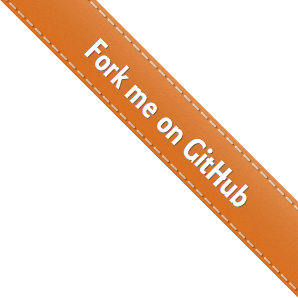In the world of software development, finding the right tools can make a world of difference. As an advocate of open-source software, I’ve curated a list of my favorite applications that enhance my productivity and make my workflow smoother. Here’s a dive into some of the best open-source tools that I rely on daily.
1. Typora
Typora is a markdown editor that stands out with its minimalistic design and seamless user experience. Unlike traditional markdown editors, Typora provides a live preview feature that transforms your markdown into a beautifully formatted document as you type. This makes it an excellent alternative to more complex tools like Obsidian. One of the features I love most is its ability to generate high-quality PDFs and DOCs from markdown files. Additionally, it supports GitHub-flavored markdown, making it a great companion for developers working with GitHub documentation.
2. Beekeeper Studio
For managing databases, Beekeeper Studio is my go-to cross-platform client. It’s simple yet powerful, offering just the essential features needed for database management without any unnecessary bloat. Whether you’re working with MySQL, PostgreSQL, or other databases, Beekeeper Studio provides a clean interface that makes querying and managing your databases straightforward and efficient.
3. Dadroid
When it comes to viewing large JSON files, Dadroid is unmatched. It’s a GUI-based JSON viewer that can handle massive files with ease, opening them almost instantly. This tool is a lifesaver when working with large data sets, allowing you to navigate and analyze JSON files without worrying about performance issues.
4. fx
If you prefer working in the terminal, fx is a powerful JSON viewer and processor that I frequently use. It allows you to quickly inspect and manipulate JSON data directly from the command line, which is invaluable for developers who spend a lot of time in the terminal. The simplicity and efficiency of fx make it a must-have tool for any developer dealing with JSON data.
5. autojump
autojump is a productivity booster for anyone who frequently navigates the filesystem via the command line. It tracks your most-used directories and allows you to jump to them with just a few keystrokes. This significantly speeds up the process of moving between directories, especially when working on large projects with deep folder structures. If you are curious how to integrate it with fish shell – check my guidelines here.
6. fish
The fish shell is my preferred command-line shell. It’s smart, user-friendly, and packed with features that make working in the terminal a more pleasant experience. With syntax highlighting, autosuggestions, and an intuitive scripting language, fish is a significant upgrade over the default shells on most systems. It’s available on Linux, macOS, and other operating systems, making it a versatile choice for any developer.
7. Starship
Speaking of shells, Starship is an excellent addition to any shell environment. It’s a minimal, blazing-fast, and infinitely customizable prompt that works with virtually any shell. Starship enhances your prompt by displaying useful information like the status of your Git repository, Python virtual environments, and more, all without compromising speed.
8. Meld
When you need to compare files or directories, Meld is the tool for the job. It provides a clear interface for two- and three-way comparisons, making it easy to spot differences and merge changes. It also supports version control systems like Git, making it an essential tool for developers who need to manage code changes across different branches or repositories.
9. Zed
Zed is an impressive code editor designed for high performance and collaboration. Developed by the creators of Atom and Tree-sitter, Zed is a multiplayer code editor that allows multiple developers to work on the same codebase simultaneously. Its open-source nature and focus on speed make it a strong contender in the crowded code editor market.
10. Chatbox AI
For those who want an AI assistant that respects their privacy, Chatbox AI is a standout option. It’s compatible with various cutting-edge AI models and APIs, and it’s available across multiple platforms. What sets Chatbox AI apart is that it stores all chat history locally on your computer, ensuring that your data remains private and secure.
11. Bruno
Bruno is a fast and Git-friendly open-source API client that’s challenging the status quo dominated by tools like Postman and Insomnia. What I appreciate most about Bruno is its commitment to data privacy—it’s offline-only, with no plans to add cloud-sync features. Your API collections are stored in plain text using a markup language called Bru, making them easy to version control with Git or any other VCS.
12. Antares SQL
Finally, Antares SQL is an SQL client that’s still in development but shows a lot of promise. It aims to support a wide range of databases and operating systems, including ARM versions. Currently, it supports MySQL/MariaDB, PostgreSQL, SQLite, and Firebird SQL, and I’m excited to see how it evolves as new features are added.
13. Bitwarden
Bitwarden is open-source and cross-platform password safe, available also as a browser extension and mobile application. It makes it easy to share passwords between devices (and different browsers). It can also remember your mobile apps credentials, generate secure passwords, OTP codes and passkeys.
14. bat
bat is cat clone with wings! It has syntax highlighting and Git integration to show modifications with respect to the index. It features a built-in pager, too.
15. gotop
gotop is yet another terminal based graphical activity monitor, inspired by gtop and vtop, this time written in Go! I found it more readable and intuitive than htop.
test
